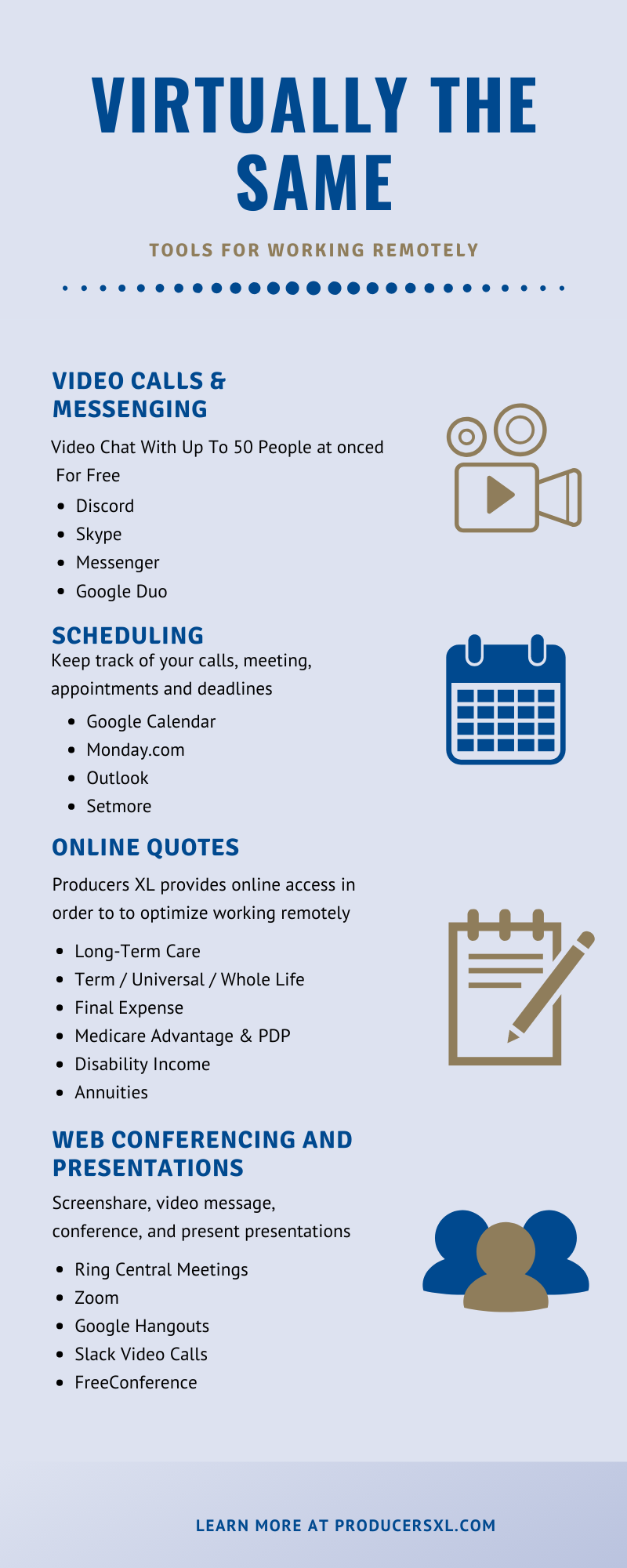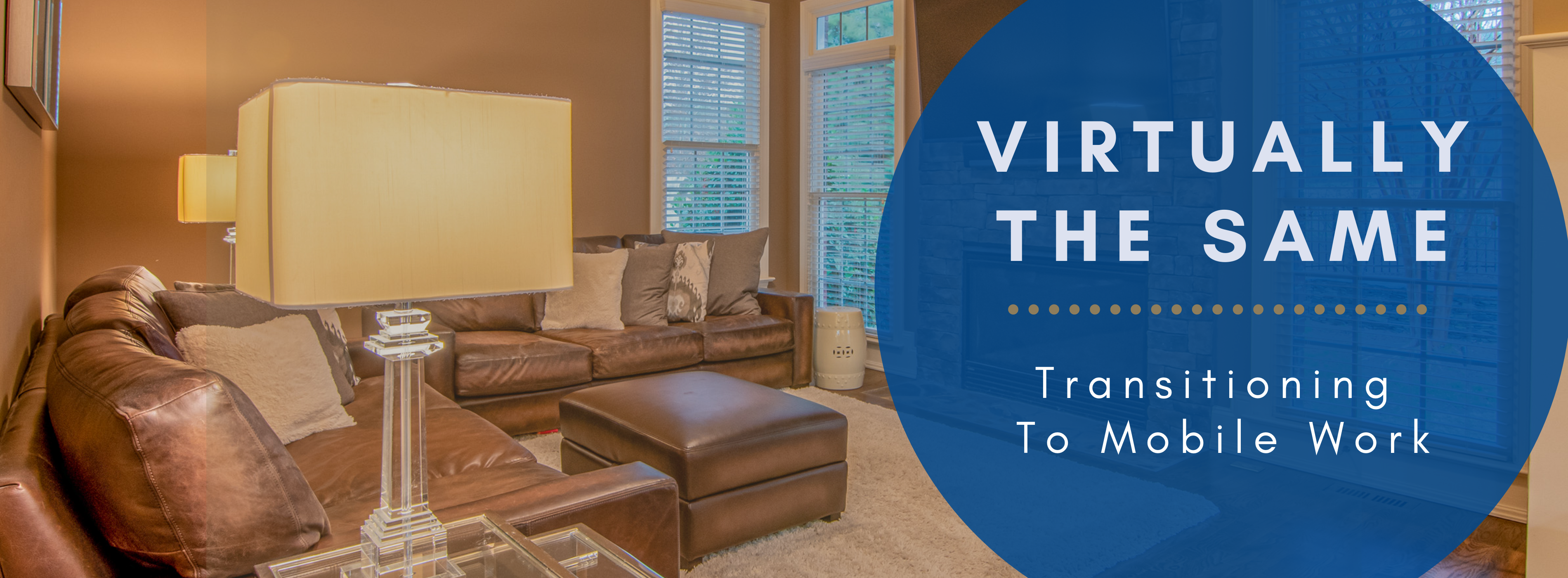March 19th, 2020
It’s a rainy morning in March as the luxurious scent of Gevalia French roast drifts lazily from my kitchen, and my first work decision of the day has been to set my equipment up around my couch. Today, I’ll be working from home. Since America’s first case of 2019 novel Coronavirus (COVID-19) was diagnosed in Washington almost two months ago, many of us have taken steps to actively assist in the efforts to stem the increasing tide. Self-quarantine, a candidate for buzzword of the year, has shown itself as one of the best solutions we can take to reduce this outbreak. However, as many of us are transitioning into this era of workplace flexibility for the first time, there has been a sharp uptick in the concern about working remotely. So, as I sip my morning coffee, I figured I’d share my thoughts on operating remotely.

Kristofer Lewis
Digital Marketing Manager
800.541.6705
I cannot stress enough the severe potential of this virus. I’m no doctor, but if you’re reading this article it’s likely you already understand that we’re at a point where we need to consider tough options for the best of ourselves and others. We’ve seen waves of public closings; schools and internships, flights and concerts. So, if you’ve been considering self-quarantine, or have a preventative protocol established at your office, here are a few of my thoughts for your consideration.
1.) Working Remotely Won’t Ruin Business
Many of the clients I work with are at small or independently owned businesses that thrive on their relationships with customers. Wouldn’t it seem like idiocy to off-site that kind of operation? There are justifiable concerns in today’s climate, but whether working remotely will harm business shouldn’t be one of them. Almost a quarter of working Americans are already conducting business remotely as a standard practice. Not only is there evidence for increased productivity and job satisfaction, but there’s already a stable infrastructure for conducting business virtually.
It almost goes without saying that most people you’ll be doing business with have a phone, a vast majority of Americans do, and a good number of people still check their emails. However, the real treasure is the innumerable ways the internet provides solutions. If a phone call won’t suffice there are video chat services that can go the extra distance. Messenger, Skype, Google Duo, and Discord have enough functionality to provide for the average small business’s needs, at no cost. If a document is too large for you to email, there’s always file compression and file-sharing services a short google search away; be warned it might be a tad bias towards Drive though. There’s also a pile of programs for managing work schedules remotely. As for the services you have available, I could go on.
2.) Communication is Vital
Arguably the hardest and most crucial aspect of remote work is maintaining exceptional communication. Good communication has always been important for business, but especially when operating remotely. There’s no conference room for your Monday meeting, and no break room to catch up in. Remote work demands extra organizational effort to avoid misunderstanding, or team members falling out of the loop. This starts with planning

your communication. Make sure all parties are on board with how you’ll be communicating. Answer questions like, “How will my team access the schedule and their assignments?” and “What’s our first line of communication?” when you’re building towards transition. Every team has a different way that’s best for their members, and there’s no one right way, but I recommend starting with a roadmap for how you’ll communicate on different goals before starting a transition towards virtual business.
It’s also important to think about how’ll you’ll communicate with customers. They’ll need to know about new policies and changes to how you’ll be handling business interactions. If you have a mailing list, a book of business, or a social platform, take the time to make that information available.
3.) Stay On Goal
In-office, you might be able to get away with a task-oriented workday; file papers, make calls, eat lunch, make calls, file papers, go home. Working remotely requires a goal-oriented strategy. The goals a business needs to achieve, and the role each member contributes to that process, should stay front and center. While many benefits come from the freedom of working remotely, it places much of the day-to-day oversight in the hands of the employee. You may or may not be surprised, but I’ve talked to several people who are squeamish with the idea. It means each employee acts like their own immediate supervisor. But unless you think your employees lack a sense of responsibility, it’s easy to see how this might result in a stronger commitment to the cause.
Still, in order to be successful everyone needs to know what their goals are, when they need to be met, and some of the wider context of how their efforts play into the business’s wellbeing. Without clearly defined goals, even the most responsible person will struggle to conduct business remotely.
As we all hunker down for the upcoming months, doing everything we can to help, remember that you have the tools at your disposal necessary to weather this. And for those of you who work with us, rest assured that we’ll be doing everything in our power to assist you. We’ve made sure every tool at our disposal is available to our clients via our website, or through contacting us. You can find many of these resources at ProducersXL.com. If you need me, I’ll be here, drinking coffee and getting work done.

